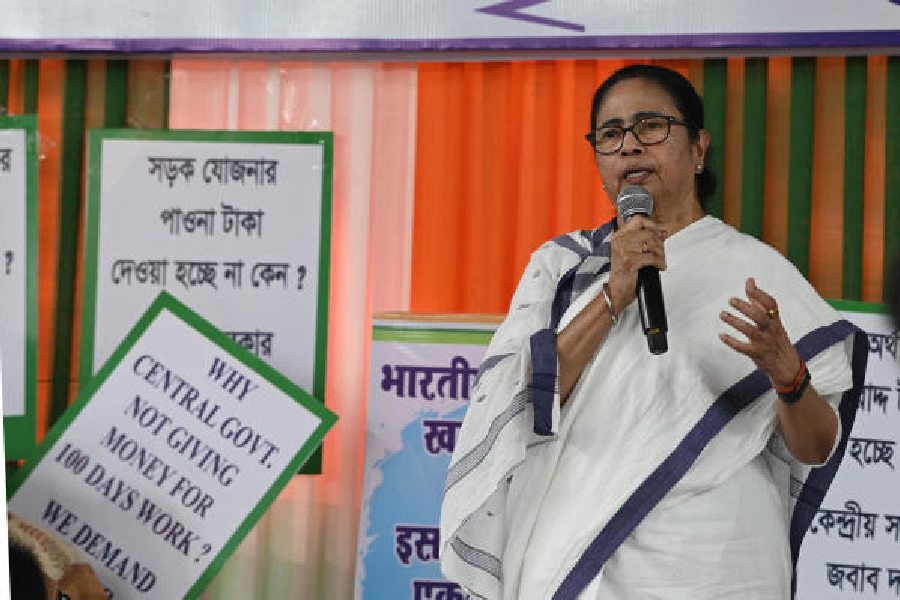What Bengal’s chief minister thinks today may not necessarily brighten INDIA’s electoral prospects in the state tomorrow. Mamata Banerjee, ironically a key member of the Opposition alliance, has been markedly belligerent towards the Congress, supposedly her ally in the Lok Sabha polls that are imminent. Her caustic remark about the Congress’s possible electoral kitty — a harvest of around 40 parliamentary seats — has, expectedly, ruffled feathers. Her party, the Trinamul Congress, has even gone to the extent of putting hurdles on the path of Rahul Gandhi’s yatra in Bengal. But it is not as if the Congress’s conduct has been blameless. One of the reasons for Ms Banerjee breathing fire and brimstone has been the Congress high command’s perceived inability — unwillingness — to rein in its state unit leadership, especially Adhir Ranjan Chowdhury, from its adversarial postures against Ms Banerjee even as national leaders, including Mr Gandhi, continue to make placatory noises. Tellingly, the Communist Party of India (Marxist), yet another constituent of the INDIA bloc, has not been averse to stirring these muddied waters. The CPI(M)’s participation in Mr Gandhi’s march in Bengal is bound to drive a deeper wedge among the Opposition ranks in the state. The word, though, is that Ms Banerjee’s meeting with Sonia Gandhi scheduled this week could offer a balm to the wounds.
There is conjecture that a part of this animosity is curated. It is meant to strengthen the hands of the respective parties on the negotiation table for seats. But what INDIA’s minders seem to have forgotten is that modern electoral battles are shaped not only by bargaining chips but also by optics. And INDIA is losing its hand in this battle of perception. Already, Nitish Kumar’s somersault to the National Democratic Alliance has torpedoed the Opposition’s claims of being a united front. Ms Banerjee’s wranglings with the Congress and the Left are bound to consolidate this view. Moreover, the energy expended in dousing domestic fires is robbing the Opposition the time to frame a credible, consensual strategy on key issues. Bengal has, in fact, exposed INDIA’s vulnerability to the pulls and pressures that are a natural outcome of an alliance of — critics allege — strange bedfellows.











